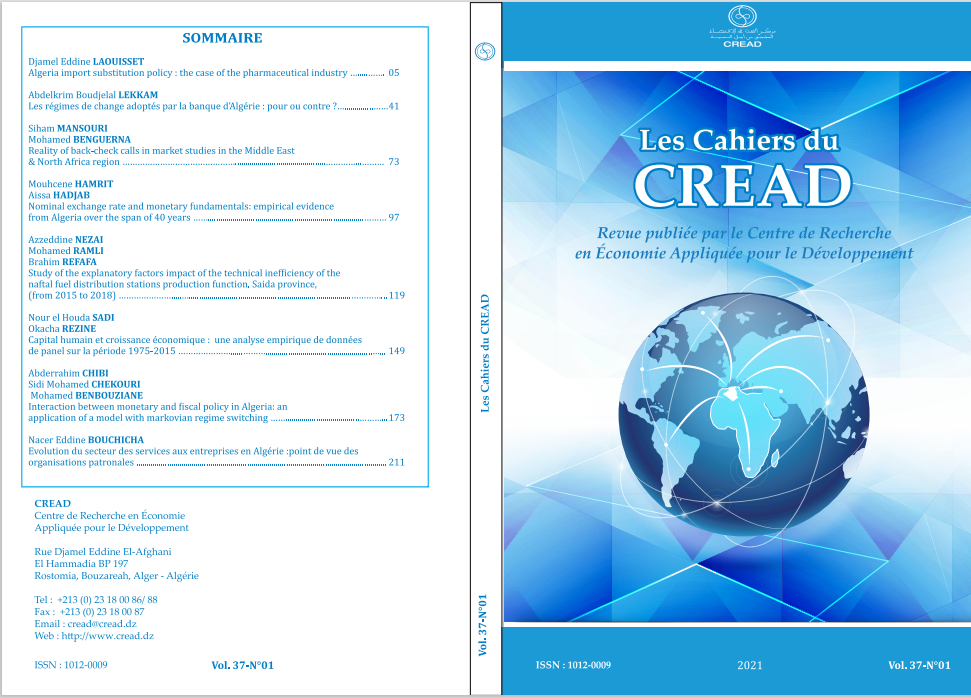Algeria import substitution policy : the case of the pharmaceutical industry
Main Article Content
Abstract
This paper investigates Algeria’s pharmaceutical industry import substitution issues and challenges. Algeria’s pharmaceutical market, remains by far the largest existing market in the MENA region, and the reasons are, first, the country’s universal health system, second, the country’s rapid population growth, and third, the country’s incentives to increase local production. However, eradicating supply shortages, and aligning supply with demand remain a challenge for policymakers. In fact in Algeria pharmaceuticals supply chain is characterized by a multiplicity of actors, ranging from local producers to government agencies, all engaged in products’ pricing, quantities, stocks, and labeling policies. Supply shortages are also linked to the ongoing globalization of production and markets, which has driven prioritization of sales, first, to countries with comparatively advantageous prices, second, to countries with comparatively less severe penalties, third, to countries with unexpected rise in demand, and fourth, to countries with major production bottlenecks. In Algeria, the rising consumption pattern, exacerbated by population growth, epidemiological evolution, and innovative products, has led to much decisions crafted under conditions of high uncertainty
